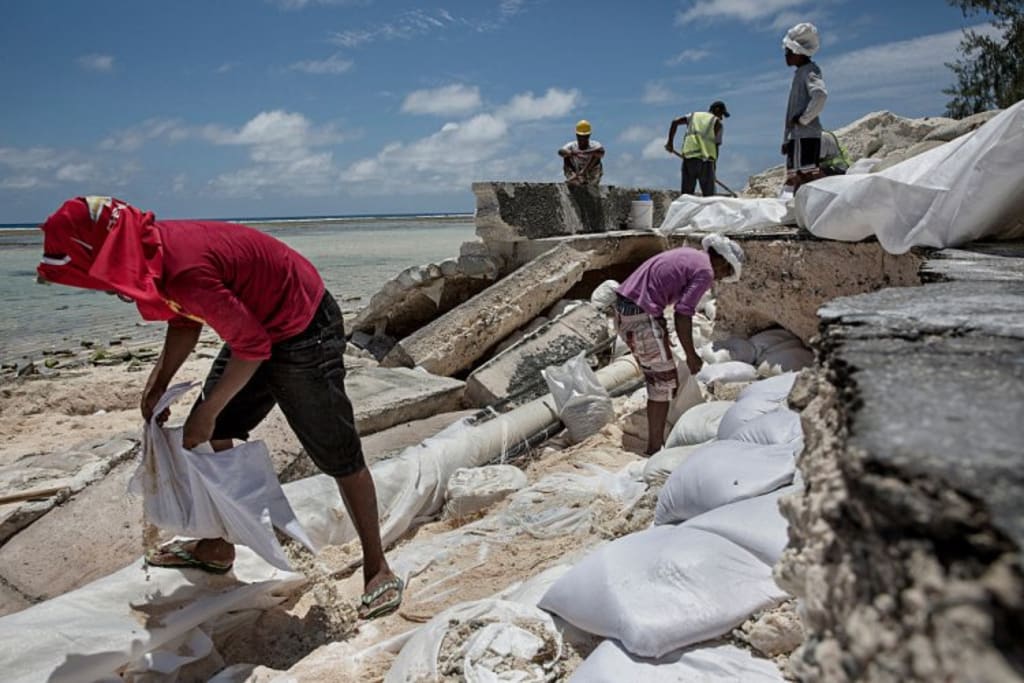Evil man has done which may befall the Earth in next decades
Social, Economic and Political

In the course of human history, our actions have significantly altered the natural environment, leading to profound and often detrimental effects on the planet. This discussion will delve into the harmful impact of earthquakes, deforestation, the killing of wildlife, and volcanic eruptions on nature, highlighting the shortcomings of human activities.
### Earthquakes: Unleashing Natural Forces and Human Vulnerability Earthquakes, while primarily natural phenomena, can be exacerbated by human activities such as mining and reservoir-induced seismicity. The destruction caused by earthquakes not only leads to immediate loss of life and property but also has long-term consequences, affecting ecosystems, water resources, and overall environmental stability.
### Deforestation: Disrupting Ecosystem Balance Deforestation, driven by logging, agriculture, and urbanization, results in the clearance of vast expanses of forests. This not only diminishes biodiversity but also contributes to climate change by reducing the capacity of forests to absorb carbon dioxide. The consequences of deforestation extend beyond local ecosystems, affecting global climate patterns and exacerbating environmental challenges.
### Killing of Wildlife: Disrupting Ecological Harmony The intentional killing of wildlife for various reasons, including poaching and habitat destruction, has led to a dramatic decline in many species. This loss of biodiversity disrupts ecological balance, weakens ecosystems, and can have cascading effects on human societies dependent on these ecosystems for resources and services.
### Volcanic Eruptions: Nature's Fury and Human Adaptation Volcanic eruptions, though primarily natural events, can be influenced by human activities in some cases. The immediate impact of eruptions includes destruction of landscapes, release of harmful gases, and disruption of ecosystems. While volcanic eruptions have shaped the Earth's surface over millions of years, human populations in volcanic regions face challenges in adapting to and mitigating the effects of these events.
### Shortcomings of Human Actions: A Common Thread Across these examples, a common thread emerges – the shortcomings of human actions in understanding, managing, and mitigating the impact on nature. Often driven by short-term economic interests or lack of awareness, human activities have resulted in long-lasting and sometimes irreversible damage to the environment.The narrative concludes with the commitment to nuclear non-proliferation. Diplomatic efforts intensify, and nations adhere to arms control agreements. The story unfolds in a world where disarmament initiatives gain traction, and the specter of nuclear conflict recedes. Global cooperation ensures that nuclear technologies are harnessed for peaceful purposes, and nations work together to create a safer and more secure world.
The specter of climate change looms large over the global community. Human activities, particularly the burning of fossil fuels and deforestation, have led to a steady rise in greenhouse gas emissions, resulting in a warming planet. The consequences are profound and far-reaching — more frequent and severe extreme weather events, rising sea levels, and disruptions to ecosystems.It begins with the stark reality of melting ice caps and glaciers, a visual testament to the Earth's changing climate. The impacts extend beyond environmental concerns, affecting vulnerable communities through droughts, floods, and altered precipitation patterns. As temperatures soar, the need for adaptation and resilience.
The consequences are felt globally, with implications for climate regulation and the livelihoods of indigenous communities. The urgency to embrace sustainable practices and conservation efforts becomes evident.
In conclusion, the narrative of solutions to prevent global challenges is one of collective action, shared responsibility, and an unwavering commitment to building a better future. It is a narrative where nations, communities, and individuals recognize their interconnectedness and collaborate to address the pressing issues of our time. The challenges may be formidable, but the collective will to overcome them paints a narrative of resilience, hope, and a shared vision for a sustainable and harmonious world.






Comments
There are no comments for this story
Be the first to respond and start the conversation.